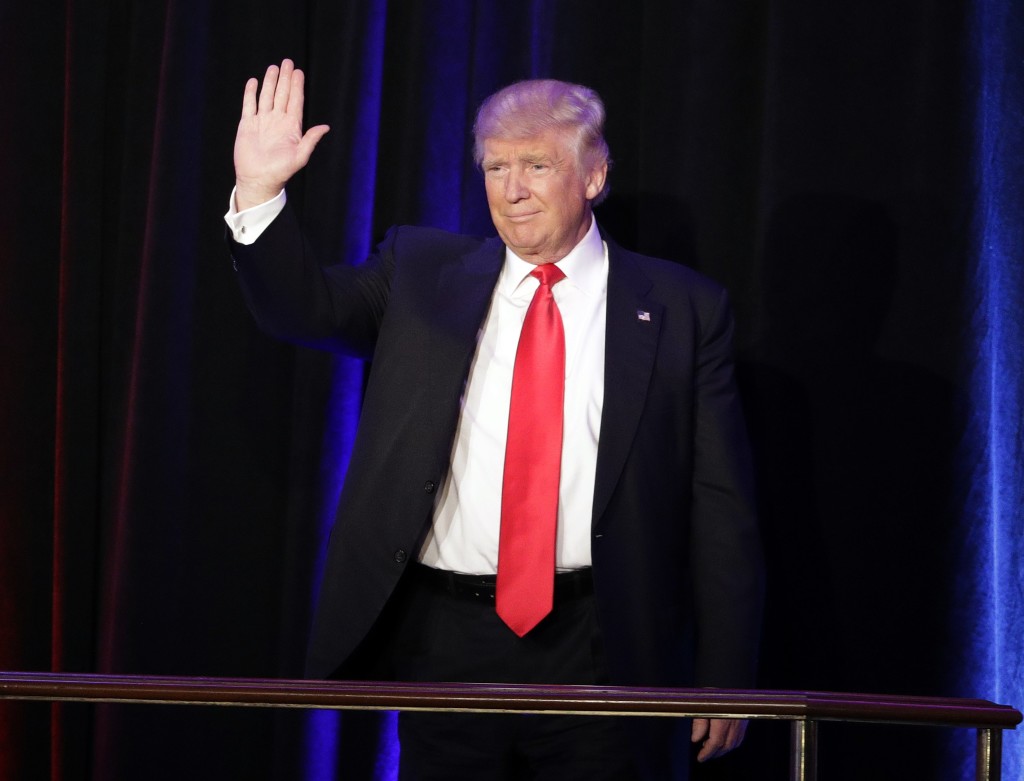ORLANDO, Florida—Manny Ramos listened intently to post-election reports filtering into his radio through National Public Radio’s (NPR) broadcast, his reaction varying, depending on the news items that filled time as he drove through Ronald Reagan boulevard in Seminole County’s suburban Longwood city here.
There was hope in his voice. Later, resignation would set in. Often, apprehension would take over. And every now and then, residue shock would emerge.
“I was stunned,” Ramos, a nurse for over two decades here, said, not only about Donald Trump winning the elections but doing so by taking several battleground states, including Florida, to beat Democratic bet Hillary Clinton.
“I really did not expect that,” said Ramos, a registered Democrat.
The myriad emotions that reflected off Ramos during the NPR broadcast was a nutshell of what Filipino-Americans felt on Wednesday, a day after Trump returned the Republicans to the White House.
In Democrat strongholds, shock was the overwhelming sentiment, closely followed by anger and resignation.
“I was disappointed about the election result,” said Ivan Dasig, a lead nurse at Northbay Medical Center’s intensive care unit, citing Trump’s history of bigotry.
“There’s the discrimination. (Trump’s win) might validate white supremacists now that their president is elected. We might see a rise of bullying at school and prejudice against immigrants.”
In the swing states, the reaction was a lot more varied.
For Ramos, who has raised a family in a beautiful suburban home, racism isn’t as much of a concern in a melting pot state like Florida as the future of health care and the economic repercussions of Trump’s volatile personality.
“He wants to repeal the Affordable Health Care act and there is uncertainty as to how that will affect those who were able to purchase health insurance because of that law,” Ramos said, referring to the 20 million or so who have health care because of the law.
In Raleigh, North Carolina—another swing state Trump wrested from the Democrats, fear was among the emotions that overcame Fil-Ams.
Lowell Onting, a software developer and tester, said fear drove him to the poll booths in an attempt to stop a man who he felt “could start a war in a heartbeat.” And that fear was raised a notch when the effort went for naught.
Deena Omega Tañedo, a 40-year-old physical therapist who voted for Clinton, woke up at 5 a.m. just to check the election results.
“I was shocked Trump won despite what (early) polls showed,” she said, adding that there is a sense of apprehension that fills her about the Trump presidency.
“His foreign policies,” she said. “And in his 1st 100 days, he wants to get rid of illegal immigrants and the H1B visas. I hope he will grant amnesty to those who deserve it instead of (opting for blanket) deportation.”
North Carolina lived up to its swing state reputation as there were Fil-Ams who voted for Trump.
Bem de Guzman, who initially had no intentions of voting, eventually picked Trump because the Republican platform lined up with her views.
“I voted for Trump. I expected him to win here in NC but I did not expect him to win the presidency,” said Cesar Torrefranca.
Serge Rocamora, who voted for Clinton, said his apprehensions about a Trump presidency mellowed somehow, but the spate of protests over the election result reawakened his fears.
But as is common with the Filipino culture, Fil-Ams who voted against Trump remained hopeful about his presidency, with some looking at what Dasig, who worries about the effect of Trump’s win to jobs outsourced by American companies to the Philippines, calls “silver linings.”
“He promised to lower income taxes and if he repeals Obamacare, our insurance premiums will be lower,” he said.
Ramos, who stayed up until 3 a.m. only to watch state after state fall into Republican hands, said he managed to harvest hope from Trump’s victory speech.
“It was a really good speech,” Ramos said. “Maybe there’s more to the guy.”


